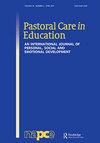Wellbeing in higher education: a student perspective
IF 0.9
Q3 EDUCATION & EDUCATIONAL RESEARCH
引用次数: 1
Abstract
ABSTRACT The move from secondary education into higher education is an important life event for many young people, and such a dramatic change in environment and responsibility can bring with it significant new challenges. Reports and surveys outlining low levels of wellbeing amongst students are becoming more and more prevalent. Many universities provide a broad range of support provisions, yet outcomes for students generally remain poor. The way in which pastoral care and guidance is signposted and communicated plays an important role in engaging young people, particularly in an environment where perception and stigma can be significant in influencing behaviour. Ensuring that wellbeing support is delivered in a convenient and sustainable way is a valuable tool in encouraging young people to come forward. Wellbeing should be reflected in every aspect of strategy for higher education providers, and a culture of proactive advice rather than reactive support should be the norm. Most importantly, reflecting on the voice of young people and creating student-led schemes will go a long way in ensuring that wellbeing support is open, accessible and effective.高等教育中的幸福:一个学生的视角
从中等教育到高等教育的转变对许多年轻人来说是一件重要的生活事件,而这种环境和责任的巨大变化也会带来重大的新挑战。报告和调查显示,学生的幸福感水平较低正变得越来越普遍。许多大学提供广泛的支持条款,但学生的结果通常仍然很差。教牧关怀和指导的路标和传达方式在吸引青年人参与方面发挥着重要作用,特别是在一个感知和耻辱可能对行为产生重大影响的环境中。确保以方便和可持续的方式提供福利支持是鼓励年轻人挺身而出的宝贵工具。高等教育提供者的福利应该反映在战略的各个方面,主动建议而不是被动支持的文化应该成为常态。最重要的是,反思年轻人的声音,制定以学生为主导的计划,将大大有助于确保福利支持的开放、可及和有效。
本文章由计算机程序翻译,如有差异,请以英文原文为准。
求助全文
约1分钟内获得全文
求助全文

 求助内容:
求助内容: 应助结果提醒方式:
应助结果提醒方式:


